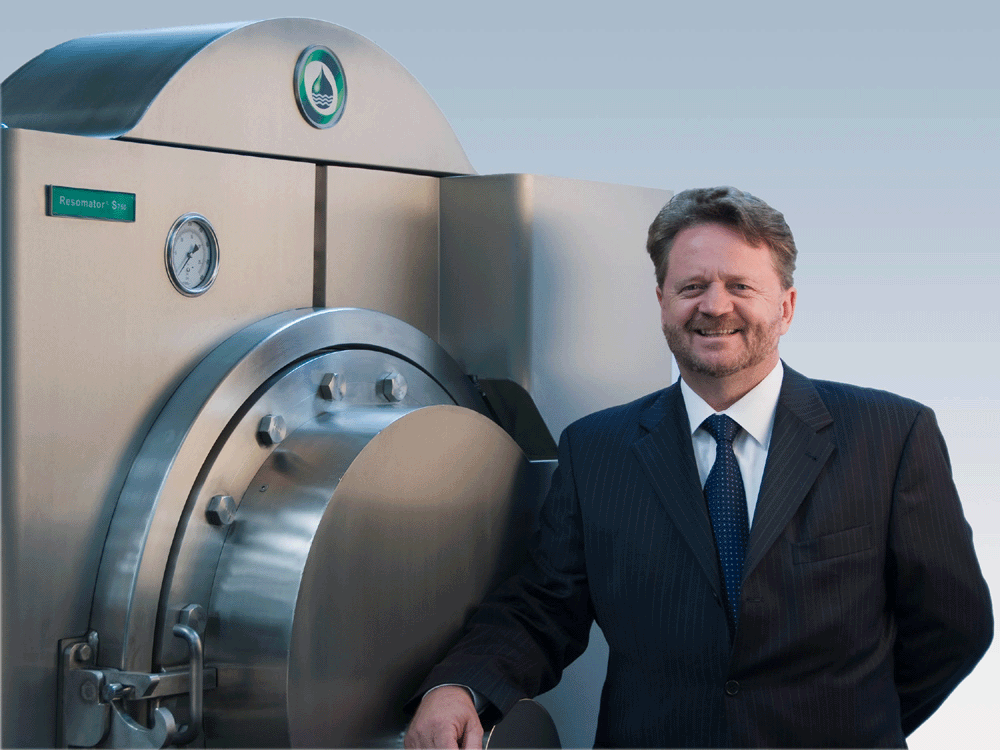AN ENTERPRISING businessman wants to give grieving Scots the choice to dissolve their loved-ones’ bodies and flush them down the drain when they die.
At present the only methods of disposing of dead loved ones in Scotland are the well-established traditions of burial or cremation.
But now a new piece of government legislation has opened the door for a new way of disposing of the dead – “resomation”.
Resomation – technically named alkaline hydrolysis – involves placing a corpse in a sealed chamber with a mixture of water and lye, which is then heated to 160c, melting away the flesh.
When the 45-90 minute process is complete all that remains is a green-brown liquid – which is flushed away – and the bones, which can be crumbled into ash and returned to loved ones.

Now a company is in talks to bring the body disposal process – which is touted as more environmentally-friendly than burial or cremation – to Scotland.
Sandy Sullivan is founder of Resomation – a Leeds-based company which manufactures, sells and installs the equipment, as well as lobbying governments to approve the technique.
He said: “I’ve started some dialogue with several companies – it’s early days, but watch this space.”
Explaining the new government legislation which allows the process, he said: “The new burial and cremation legislation passed in 2016 has a section in there to modify the act to account for other methods of disposing of the body as they come along.”
The understanding they have reached after consulting with the government is that they will get some of the machines installed, before the government steps in to regulate them.
He explained: “They can put regulation legislation in place very quickly and work with us to regulate it.”
“As far as they’re concerned resomation is a legal process, and now they have the power to regulate it.”
He said that he could not disclose exact details of his plans – given their nature as confidential business discussions.
But he explained that the role of his company would be to install the equipment and walk them through the first “processes” – the name they give to dissolving the bodies.
Mr Sullivan has overseen 70 such processes in the USA – where the practice is legal.
In spite of the grisly nature of resomation he says it has proven popular – and “people are blown away” by how dignified and respectful it is.
He said: “Clearly when it’s offered and it’s explained properly the public choose it in droves.”
He also explained how the dissolving chamber is designed to look unimposing with soft and rounded edges, and to operate at a gentle hum.
This means that grieving relatives can sit near the machine while the process occurs – which is not possible with cremation owing to the extreme amount of noise produced.
He said: “It’s a dignified and respectful process, and if people want to sit there they can do it. You can’t do that with cremation.”
According to Mr Sullivan around a quarter of those given the choice to sit near the machine whilst it dissolved their loved ones chose to do so at the resomation facility in Los Angeles.
Discussing the stigma around flushing away a portion of your loved one, he went on: “There’s absolutely no protein, no dna, it’s pure liquid. If you did an analysis of it nobody could tell it was a human being.”
On the other hand, he said: “When you embalm a body you release all the blood down the drain untreated.”
The portion of the act which he is referring to reads: “The Scottish ministers may by regulations provide that specified provisions of this act or any other enactment apply, subject to any specified modifications, in relation to specified ways of disposing of human remains.”

